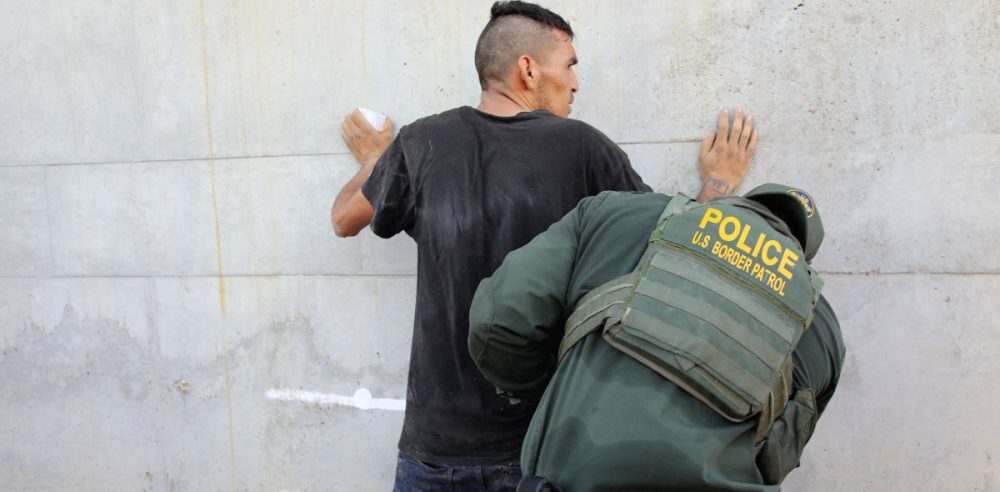(Texas Scorecard) – As caseloads crater, a spokesperson announced that Texas Supreme Court Justice Jimmy Blacklock will be ending the state-run program providing illegal aliens with defense attorneys.
In August 2021, five months into Operation Lone Star, the Texas Supreme Court issued an emergency order providing defense attorneys for illegal aliens captured as part of the state’s border security efforts if they were unable to pay for legal representation.
The court authorized the Texas Indigent Defense Commission to appoint and pay counsel through third parties. At the time, border counties, which would normally handle this, lacked sufficient attorneys and resources. In the August 2021 order, then-Texas Supreme Court Chief Justice Nathan Hecht justified this setup as necessary to protect the defendant’s constitutional right to counsel.
The court has repeatedly extended this order, but that’s coming to an end. According to a spokesperson for Blacklock, TIDC has been informed that the order will not extend past its May 1 expiration date.
“The Court’s emergency order was extended earlier this year only to provide time to plan for an orderly winding down of the Court’s involvement in this matter,” the spokesperson wrote to Texas Scorecard. “The Chief Justice does not anticipate an ongoing need for the Supreme Court’s intervention after the current order expires.”
This came after revelations about funding increases for a provider for these defense attorneys despite a corresponding dramatic drop in indigent defendants.
From January 2024 to the end of August 2025, TIDC awarded the Lone Star Defender’s Office, a nonprofit organization, a taxpayer-funded grant of $30 million to provide defense attorneys for OLS defendants. TIDC upped the grant in July 2024 to more than $37 million.
The justification for this included LSDO’s desire to hire four more “full-time” attorneys to handle OLS cases, and to offset “financial obligations” LSDO took on from the previous supplier of OLS defense attorneys.
“Feels like David vs Goliath after looking at their level of grant funding and positions,” commented Brent Smith, the county attorney in Kinney County, which borders Mexico. He is responsible for prosecuting illegal immigration cases in his area.
As the November 2024 election and subsequent inauguration of President Donald Trump’s second term approached, the border environment changed.
“Operation Lone Star arrests were low in September and October,” TIDC executive director Scott Ehlers said at the TIDC board meeting on April 4, 2025.
The number of indigent defendants cratered as well. Data that Ehlers provided to Texas Scorecard showed that, when comparing January-March 2024 and January-March 2025, the number of indigent defendants sank from 1,190 to 168, an 85 percent decline.
Regarding the 1,190 cases in January-March 2024, 845 are misdemeanors and 345 are felonies. Of the felony cases, 102 were appointed after an indictment or warrant, stemming from arrests or offenses before January-March 2024.
In state law, a misdemeanor is a less severe crime punishable by up to one year in jail and fines, while a felony is a more serious offense that carries over a year in prison and significant long-term consequences like loss of rights. The distinction hinges on the crime’s gravity, the prosecution, jurisdiction, and punishment, with misdemeanors typically being minor and felonies more severe.
As for the 168 cases from January-March 2025, 71 are misdemeanors and 97 are felonies. Among the felonies, 64 involve post-indictment or warrant appointments tied to arrests or offenses before this period.
LSDO has also come under scrutiny. The organization has sued to stop Operation Lone Star, taking it up to the U.S. Supreme Court. Meanwhile, state taxpayers have funded their indigent defense program.
Amrutha Jindal, LSDO’s executive director, didn’t respond to a request for comment before publication.


